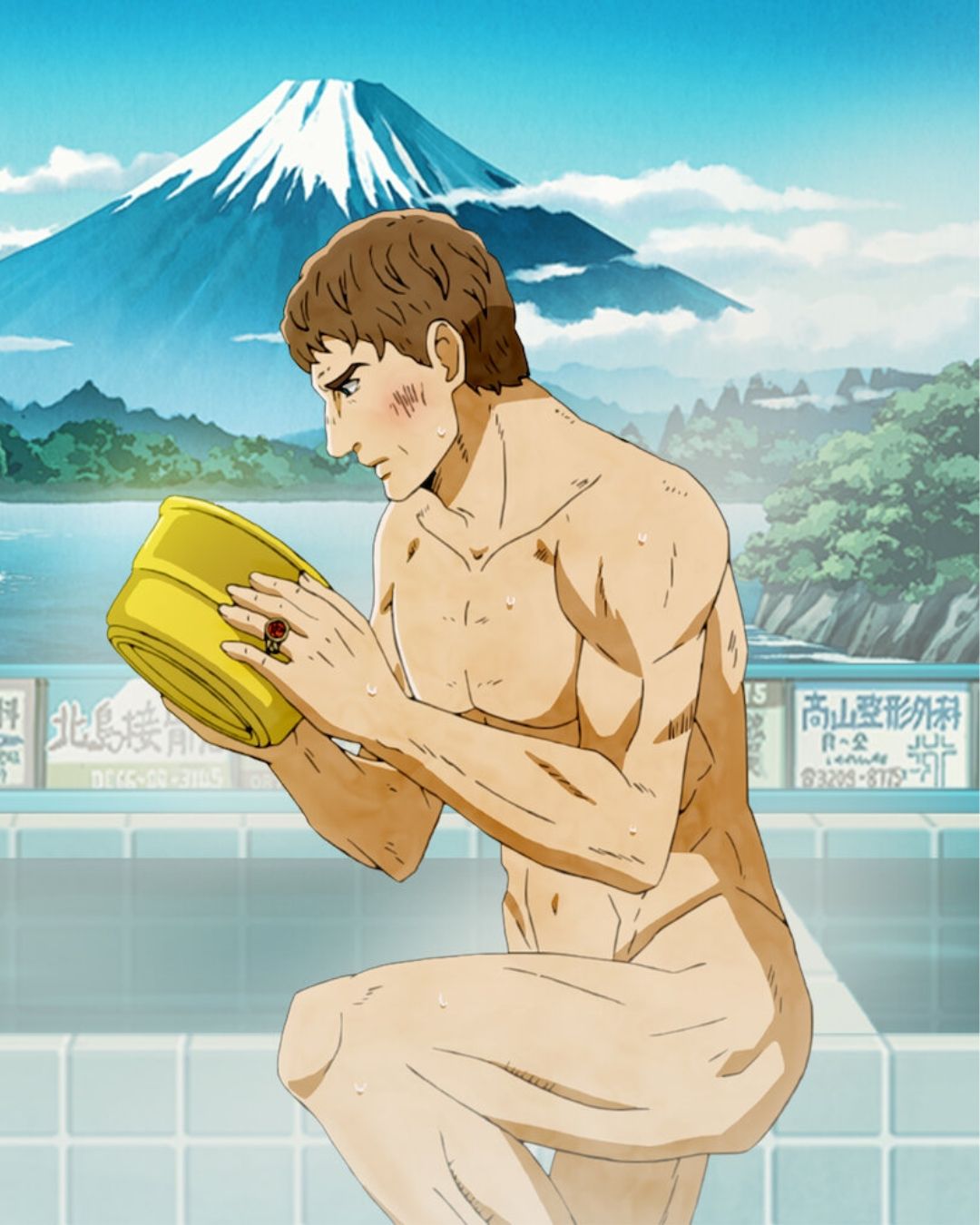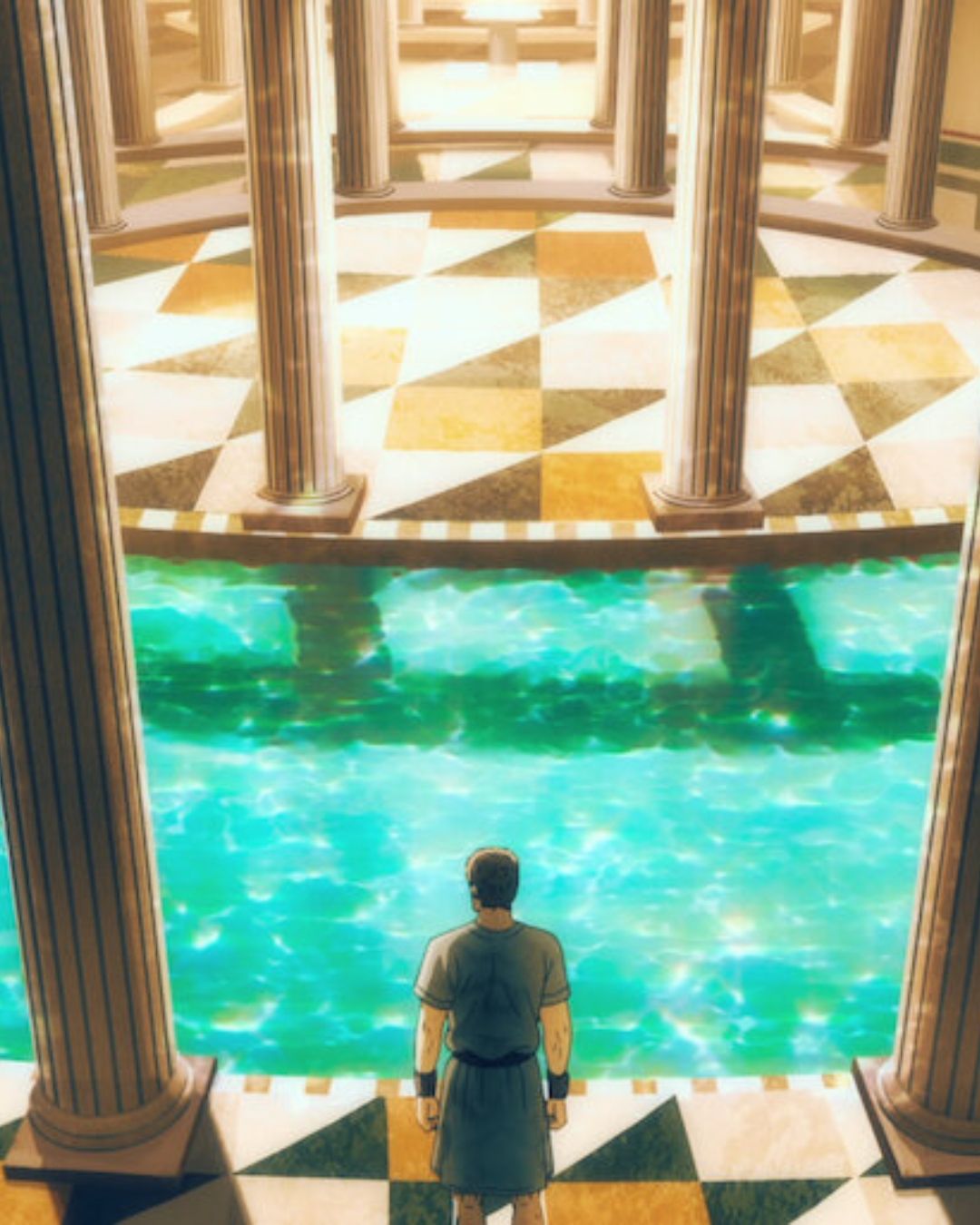
The Netflix anime Thermae Romae Novae offers an improbable muse for the 39 BC origin story: Lucius Modestus, a second-century Roman bathhouse architect, who slips through a drain and emerges in modern Japan. There, he encounters thermostatic taps, bathing stools, and fruit-flavored milk — marvels that both astonish him and deepen his devotion to the art of bathing.
Lucius returns to Rome with each revelation, transforming his designs and underscoring what Romans long understood: the bath was never just about hygiene. It was discipline, community, and soft power tiled in marble.
The anime frames Roman thermae and Japanese onsen as parallels. Both are filmed with reverence: steam rising in silence, rituals of entry and exit, a seriousness that borders on sacred. For Lucius, the bath is civic duty and private devotion in equal measure. When he sees disrespect enter the water, it wounds him. Bathing, after all, was culture distilled.

Later in the series, Lucius meets a Japanese bathhouse architect — his equal across centuries. Their bond is quiet but unmistakable: two minds fluent in the same language of stone and water. At the close of each episode, creator Mari Yamazaki steps into frame, visiting onsens in real life and narrating their history with care, reminding viewers that bathing remains a living tradition.
The lesson is timeless. From the vaulted thermae of Caracalla to rural Japanese hot springs, bathing has always been ceremony. It is architecture in motion, where stone, steam, and silence meet ritual. Step into water, and you are stepping into history still alive.

This lineage inspires 39BC, a fine-fragrance bathing brand that views water not as routine, but as ritual. Its Cleansing Shower Oils embody the same gravity Lucius gave to marble and hypocaust — structures of scent designed for the skin.
Denarii, part of Vol. I: Alexandria, carries that inheritance. With frankincense, black pepper, patchouli, cedarwood, and balsams, it turns bathing into ritual — a fragrance that smoulders long after the water has gone.
